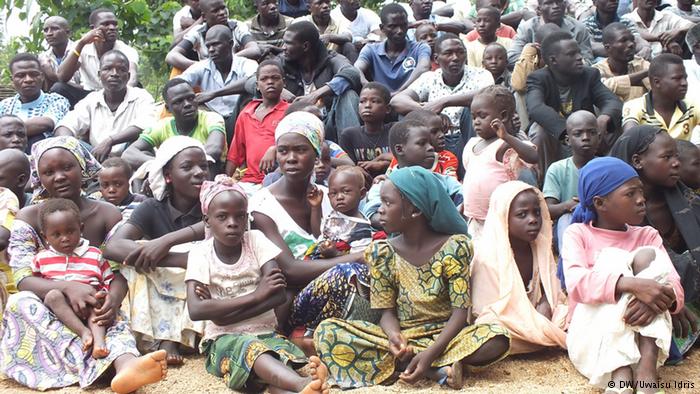The International Organization for Migration (IOM) has said that a rise in violence in the Northeast has displaced over 59,000 people in the last three months, making it the highest displacement in recent years.
Mr Frantz Celestin, the chief of the UN Migration Agency said attacks by non-state armed groups in Nigeria have left relief workers unsure about the extent of needs among some communities.
Celestin said the terrorists have been applying a “hit-and-run” tactics which have caused many more persons to seek refuge in safer towns and neighbouring nations.
According to the agency, the armed extremists, notably Boko Haram militants have contributed to a decade-long humanitarian crisis in Borno, Adamawa and Yobe, that had spilt over into the Lake Chad region.
“Since November, we have seen 59,200 displaced,” IOM Nigeria’s Chief of Mission, Frantz Celestin said, he added that in the last two years, “we have not seen that many people on the move.”
He explained that the last two months of 2018 were marked by “an increased sophistication’” of non-State armed groups accompanied by “an increased number of attacks and success in taking towns.”
Speaking about the recent attack in Rann, Mr Celestine said “In the town of Rann, which was attacked in January, nobody was spared in one assault.
“The MSF (Médecins Sans Frontières) clinic was burnt, the IOM hub was attacked, the UNICEF clinic was attacked, the WHO/ICRC’s compounds were attacked.”
Celestine said amid ongoing insecurity, humanitarian access was limited, hampering the ability of aid agencies to assess needs comprehensively.
He noted that tens of thousands of civilians have fled into already overcrowded camps, mainly in Maiduguri, the capital of Borno.
“One of our biggest issues in north-east Nigeria in addition to the security issues is the access to land.
“We have a number of camps that are overcrowded, in fact, if we were to take all of the camps together, we would have more than 249,000 people in camps that are completely congested, with Monguno (Borno) being the largest one of them.”
According to him, rumours of an imminent attack are enough to convince communities to flee, as people have sought refuge in neighbouring countries of the Lake Chad region.
“There were a number of people who moved across a number of villages in Cameroon.
“Some of them were returned, they crossed the border and they were turned back. And for the recent (displacement), I don’t have the specific numbers. I have heard 30,000, but I have not been able to prove it.”

 Aviation1 week ago
Aviation1 week ago
 Business6 days ago
Business6 days ago
 Business5 days ago
Business5 days ago
 Education5 days ago
Education5 days ago
 Crime6 days ago
Crime6 days ago
 Business1 week ago
Business1 week ago
 Business6 days ago
Business6 days ago
 Covid-195 days ago
Covid-195 days ago

